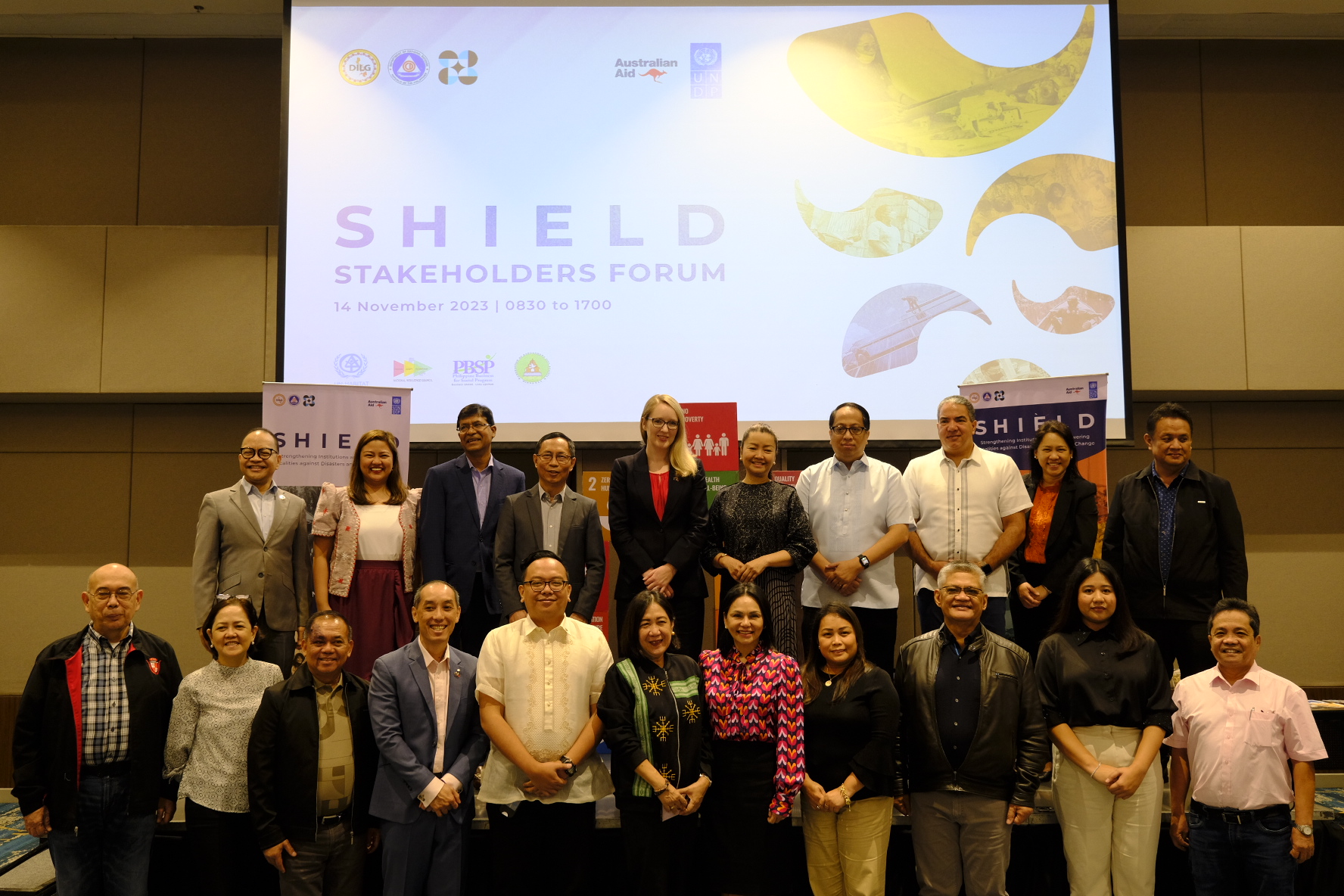Australia, DILG, and UNDP strengthen disaster risk resilience in the Philippines
November 21, 2023

QUEZON CITY, PHILIPPINES – Over 160 representatives from 12 provinces and regions, gathered for the first Annual SHIELD Stakeholders Forum hosted by the Australian Government, the Department of Interior and Local Government (DILG), and the United Nations Development Programme (UNDP).
With the theme, "Local Resilience in Action: Forging Alliances, Empowering Communities," the Forum underscored the need for unity, collaboration, and the empowerment of local communities in the face of wicked problems such as climate change.
Various local leaders and stakeholders promoted multi-stakeholder partnerships to address risks, hazards, and vulnerabilities, including Agusan del Norte Governor Angelica Amante-Matba, Agusan del Sur Governor Santiago Cane Jr., Eastern Samar Vice-Governor Ma. Caridad Goteesan, Northern Samar Provincial Board Member Don Abalon, Albay Provincial Administrator Sheina Onrubia-Dela Cruz, and a number of municipal mayors from SHIELD partner provinces.
Located in a geographically exposed area, the Philippines faces heightened risks from extreme weather events, rising sea levels, and changing climate patterns that disproportionately affect the poorest and most vulnerable communities.
Building on their longstanding partnership on climate change and disaster risk reduction and management, the Australian Government, DILG, and UNDP collaborated on a new program to build the resilience of communities through the transformative power of partnerships through local governments, as they are the first responders to disasters and emergencies.
“With the increasing intensity and severity of disasters that affect the country every year, we work for immediate and concrete actions to build the capacities of our communities to prepare, respond, and recover from the impacts of disaster and climate change,” said DILG Undersecretary Marlo L. Iringan.
"On the part of the DILG, we advocate for the use of science and technology and innovations in governance processes, disaster response and early warning systems, and monitoring tools,” added Undersecretary Iringan.
“Climate change is an urgent global threat felt most keenly by local communities. Through SHIELD, we work with national and local governments, civil society organisations, the private sector and local communities to leverage their expertise, resources and local know-how to build community resilience to natural disasters, including those caused by climate change,” said Australian Embassy Deputy Head of Mission Dr Moya Collett.
In his message, UNDP Philippines Resident Representative Dr. Selva Ramachandran emphasized the importance of engaging local governments, nudging government representatives to “focus on the needs of our local communities and the importance of tailoring our resilience strategies to the unique local contexts, understanding that one size does not fit all. As we embark on this journey, let us remember that building resilience is not a solitary endeavour but a shared commitment.”
SHIELD is an Australian Government initiative and a multi-year partnership being implemented by a consortium led by UNDP, along with its partners, Philippine Business for Social Progress, National Resilience Council, Consortium of Bangsamoro Civil Society, and UN-Habitat.
The Programme will leverage climate and disaster data to inform plans with risk analyses, facilitate the resourcing and roll-out of resilience actions at the local level, and advocate for more responsive resilience building policies at both national and local levels. By strengthening the country's ability to anticipate, plan for, respond to, and recover from the adverse effects of disasters and climate change, community impacts can be mitigated, protecting lives and livelihoods. [E]

 Locations
Locations



